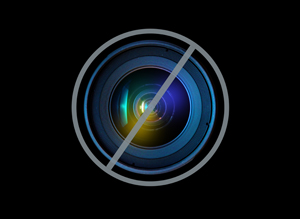
It is 3:00 p.m. on a chilly February afternoon in Minneapolis and the Utah Jazz are trying to hang on to the final playoff seed in the Western Conference during a hectic stretch of eight games in 13 days. The Jazz endured a late flight from Salt Lake City following a win over the Thunder. Tip-off with the T-Wolves is just five hours away.
It's nap time.
"I think almost everyone does it," Jazz veteran point guard Earl Watson told The Huffington Post.
The game-day nap is a longstanding NBA tradition among bleary-eyed players during the grueling 82-game season. According to Dr. Margot Putukian, director of sports medicine at Princeton University, the activity may aid the body even more than the players are aware.
"Sleep deprivation has been linked to pain and complaints of muscle and joint pain," Putukian told The Huffington Post. "We know how helpful restorative sleep is."
The rigorous schedule for NBA teams often includes late post-game flights and early morning shooting sessions, making a full night's sleep hard to come by. According to an April 2012 ESPN The Magazine article, athletes' bodies may fail to release a crucial growth hormone -- which stimulates the healing of muscle and bone -- due to uneven sleep patterns. In turn, napping can become a necessity for peak performance. According to a 1999 article published in the Journal of the Royal Society of Medicine, the effects of travel fatigue and jet-lag can begin "reducing dexterity in a technical procedure."

A Stanford University study, published in the San Francisco Chronicle and conducted from 2005 to 2008, discovered that Cardinal basketball players who slept two to three hours more than they were accustomed to ran faster sprints and improved efficiency in both free-throw and 3-point shooting by 9 percent.
"There is this myth that if you exercise, you can get away with less sleep," says Dr. David C. Nieman, professor and director of the Appalachian State Human Performance Lab. "Most studies are now showing that if you exercise, you actually need more sleep. It's pretty much the concept that you need to plug your battery in and restore because the muscles may have been disrupted."
Two-time NBA MVP Steve Nash is renowned for taking exceptional care of his body as his career has advanced deep into his 30s, and napping is a part of his regimen.
“If you nap every game day, all those hours add up and it allows you to get through the season better,” Nash told The New York Times in 2011 for a piece that named fellow MVP Award winners Bryant and Derrick Rose among those players who rely on napping to stay sharp.
"As soon as you start chopping time off of sleep, human error rate goes up," added Nieman, who wrote the book, Exercise Testing and Prescription: A Health-Related Approach. "If you don't get your sleep, you're not going to be able to perform physically."
The average age of an NBA player this season hovers around 27, and rest is even more important to athletes who are still young despite being career professionals.
"We always say that young people need sleep, especially as they're growing," Putukian says. "Without a doubt, there is a link to performance."
While the Centers for Disease Control and Prevention recommends seven hours of sleep per night, more than 33 percent of American adults are estimated to receive less than the recommended seven hours.
"Napping is a good way to catch up on rest," Watson, the Jazz point guard, says. "They are a must because the emotions from a game can keep you up until 3:00 in the morning."
Email me at jordan.schultz@huffingtonpost.com or ask me questions about anything sports-related at @Schultz_Report.
This story appears in Issue 41 of our weekly iPad magazine, Huffington, in the iTunes App store, available Friday, March 22.
